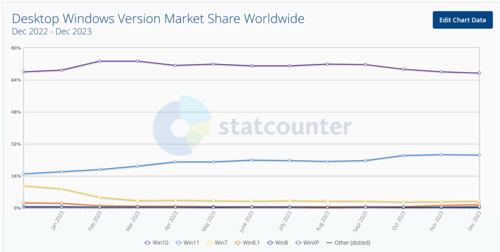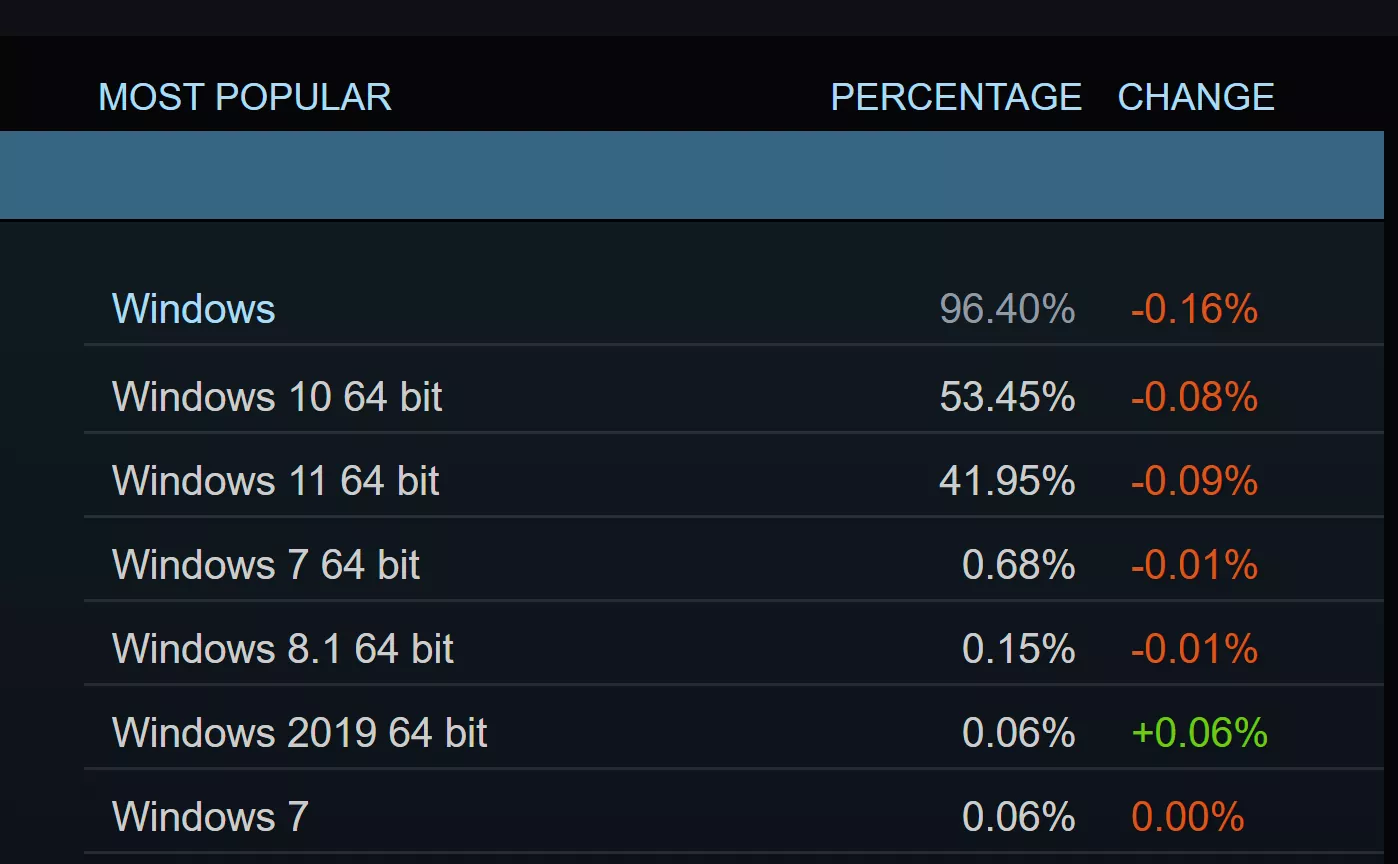In brief: With its final feature update having arrived in 2022 and all the talk about Windows 12, one might imagine that Windows 10’s popularity is waning. According to the latest figures, however, the OS was just as popular at the end of 2023 as it was at the end of 2022: found in almost seven out of ten Windows desktops worldwide.
Statcounter’s latest update on the desktop Windows version share worldwide over the previous 12 months won’t be welcome reading for Microsoft. Windows 10 ended the year with a 67.42% share. Twelve months earlier, that figure was almost identical – 67.95%.
Microsoft has been trying to push people from Windows 10 to Windows 11 since the latter arrived in October 2021. And while the most recent version of the OS has seen its share of the market grow 10% over the last twelve months, that’s not as fast as Microsoft wants. In December 2023, Windows 11 was found on just over a quarter of desktop PCs globally.
As has been the case with previous Windows versions, businesses are the prime reason why Windows 10 continues to endure. In the gamer-focused Steam survey, Windows 10 has been losing ground to Windows 11 for months. There’s only an 11% share difference between the two, and Windows 11 will almost certainly move ahead at some point this year. That said, the fact that Windows 10 is still used by more than half the respondents is significant.
Now read: Essential Apps to Install on your Windows PC or Mac
Windows 10 will reach its end-of-life date in October 2025, after which it will no longer be supported. However, Microsoft announced last month that users and businesses can receive three additional years of critical security updates if they’re willing to pay for them. No word on how much the subscriptions will be, but based on Windows 7’s ESUs, they won’t be cheap. There’s always the option of patches from third-party groups like 0patch, though.
The final feature update for Windows 10, 22H2, arrived last year. There have also been reports of Windows 12 arriving as soon as June 2024 alongside a slew of new “AI PCs.” Whether Microsoft ends up using the name Windows 12 is still unclear, especially with Windows 11’s market share still lagging so far behind Windows 10.
Research firm Canalys reported last month that following Windows 10’s end-of-life date in 2025, up to 240 million PCs could be sent to landfills due to Windows 11’s controversial hardware restrictions.



